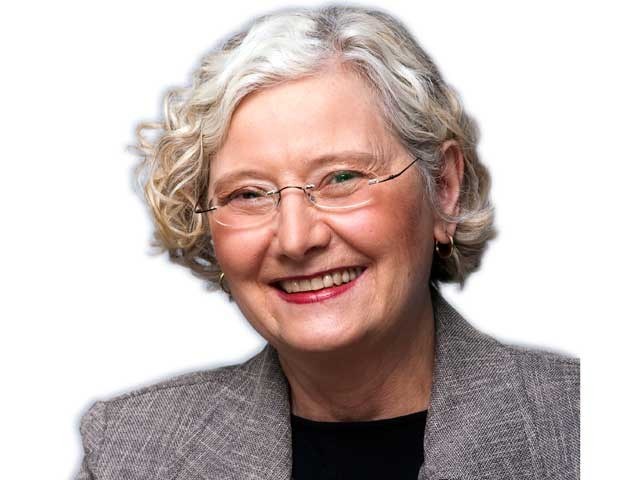B.C.'s Green Party wants to put an end to run of river hydro projects, its leader told Pique Newsmagazine Friday morning.
Jane Sterk, leader of the B.C. Greens since October 2007, said in an interview that it's time to put an end to run-of-river hydro projects and focus on delivering electricity to British Columbians through conservation.
"We're for the most part saying no more run of river, that we don't need more hydro, that through conservation and renewable energies we can move away from these projects," she said. "The run of river projects, for the most part, have been very controversial and they have not been accepted in the regions where they've been introduced."
Run of river projects, often referred to as "independent power producers" when developed by private companies, have been a big issue in B.C. since at least 2006, when the provincial government passed Bill 30.
That bill came after the Squamish-Lillooet Regional District denied in early 2005 a rezoning application for the Ashlu Creek hydro project, near Squamish. The district denied the rezoning on the grounds of "community concern and objection" to the project, as well as a lack of overall strategy for IPP production.
Bill 30 was introduced in the legislature in April 2006. Called the Miscellaneous Statutes Amendment Act, it proposed an amendment to the Utilities Commission Act saying that nothing in the Community Charter or under the Local Government Act could supersede an authorization granted by the B.C. Utilities Commission to a utility operating on Crown land.
That means if a public or private utility is being built on Crown land in a municipality or regional district, the local government can't stop it.
The move has touched off a hot debate throughout B.C. that is promising to make run of river projects a key election issue. The Greens, who released their election platform Thursday, are promising to repeal Bill 30 if elected on May 12.
"We just think decision-making should be made at the local level," Sterk said. "The regional districts and municipalities have a better understanding of the impacts of these projects on their areas, their regions."
Other promises by the Greens include changes to the environmental assessment process, something that's been a point of consternation when it comes to run of river projects. The current process, administered by the Environmental Assessment Office, prescribes a nine-stage assessment. The provincial cabinet then decides whether to approve it or not.
Critics of run of river feel the process administered by the Environmental Assessment Office (EAO) doesn't go far enough to assess the projects. In their platform, the Greens propose to "strengthen" the environmental assessment and account for the cumulative impacts of multiple projects, rather than just each one individually.
"We would change the assessment process," Sterk said. "We would require that there be cumulative impacts accounted for in these run of river projects."
West Vancouver-Garibaldi Liberal MLA Joan McIntyre, now running for re-election in the newly-formed riding of West Vancouver-Sea to Sky, said she doesn't think there's anyone more committed to conservation than the B.C. Liberals.
"We introduced a 55-point energy plan several years ago that we've been in the process of executing," she said. "Over the last three years, we've brought in eight pieces of legislation related to both our environment and energy, but we have a very aggressive target of 50 per cent of B.C. Hydro's incremental resource needs through conservation by 2010."
As for Bill 30, McIntyre thinks it's often "misunderstood" by its critics.
"What that did, is it was a small amendment that allowed some of these independent power producers exactly the same rights as B.C. Hydro would have," she said. "Nothing more, nothing less."
Speaking about run of river hydro, McIntyre said that British Columbia is looking at a "whole mix of renewables" in order to meet the province's energy needs "and that includes run of river."
"(Run of river) is a very important part of our goal to be electricity self-sufficient by 2016," she said. "We have been relying on our ability to produce green power so we don't have to import from sources that are coal-fired and using gas from our neighbouring partners like Washington and Alberta."
McIntyre is facing off against the Green Party's Jim Stephenson in the contest for her riding. A spokesman for B.C.'s New Democratic Party said the party will have a candidate in West Vancouver-Sea to Sky ready on April 8, about a month before British Columbians vote on May 12.




